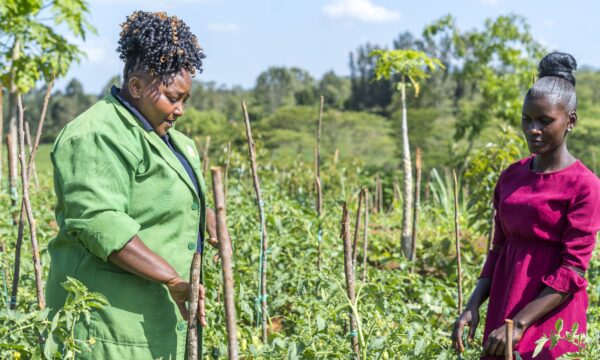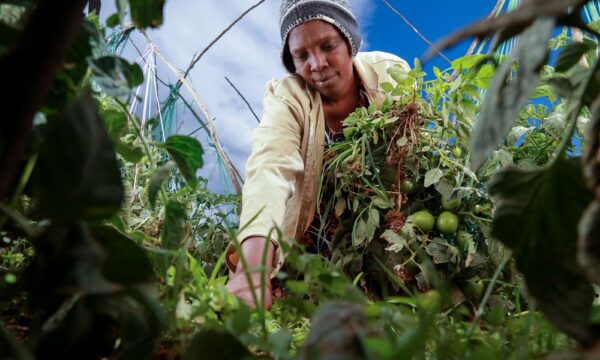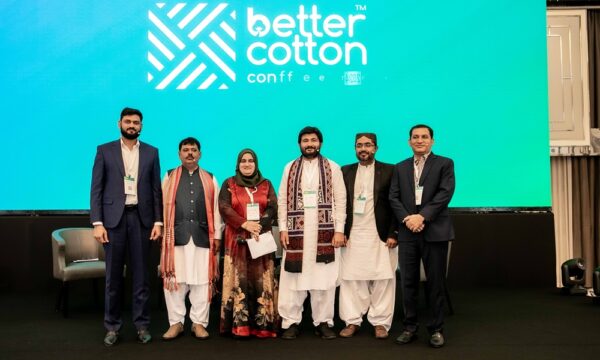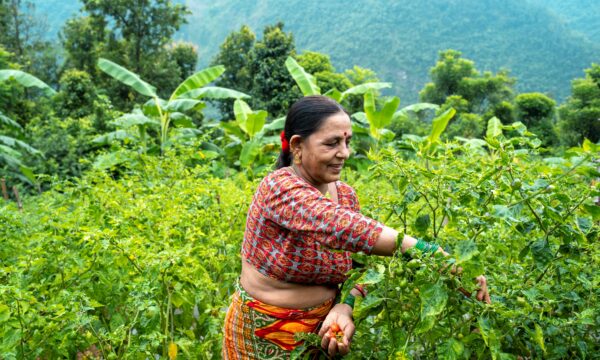
Conventional farming systems in Pakistan deprive smallholder potato farmers (both men and women) of the fair and equitable social and financial gains they deserve as a result of social, marketing, and technical challenges.
Smallholder farmers usually lack information about how customers value quality potatoes. They are least aware of the standardized production skills and post-harvest technologies to produce this quality of potato.
Value chain approach
However, a project in Pakistan is addressing these hurdles. The ‘Strengthening Vegetable Value Chains in Pakistan’ (SVVCP) project adopts a value chain approach supported by Participatory Action Research (PAR) and a ‘whole farmer family’ approach.
It aims to discover opportunities for chain improvement and testing interventions identified through value chain analysis by a multidisciplinary research team. Its purpose is to enhance the socioeconomic benefits of small landholders.
Families have benefited from implementing the project interventions in two target potato villages in Punjab, demonstrating the effectiveness of the approaches.
Team of experts
The multidisciplinary team of experts (marketing, social, technical) from CABI, National Agriculture Research Centre (NARC), University of Agriculture Faisalabad (UAF), the Department of Agriculture Extension, Punjab, and Engro Foundation were supported by experts from University of Queensland (UQ), Australia.
Two villages (37D and 38D) from the potato growing district of Okara were selected based on criteria developed by the social science team. Smallholder farmer families growing potato were organized into two groups (one in each village).
A whole farmer family approach was applied to boost regular engagement. Awareness of nutritious food and kitchen gardening training was provided for women, which further strengthened the commitment of the families to the approach.
Consumer valued quality
The SVVCP team took farmers on a walkthrough of the local potato value chain in order to discover what consumers value, how traders deliver consumer value and what opportunities exist for smallholders to create consumer valued quality.
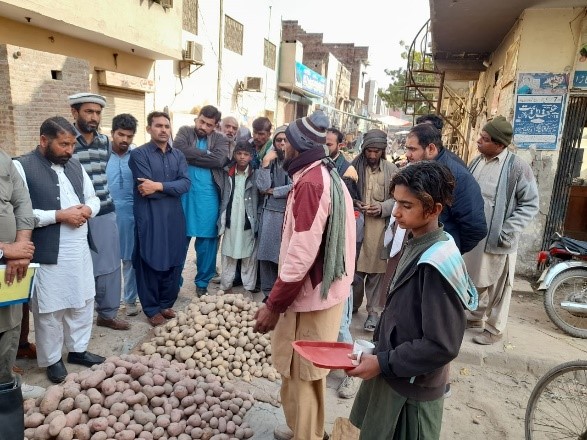
Through this, ‘walk the chain’ farmers realized that customers prefer >90 gram of potato in jute bags of 110Kg, free of mud, cuts, damage and spots of skin diseases, particularly scabs, and free of a greenish colour.
Production and post-harvest teams found that the lack of capacity among farmers and labourers for proper sorting, grading, curing, and storage of potato causes major barriers.
Using fertilizers without soil analysis and appropriate management of scabs and other diseases is also a major barrier, preventing smallholder farmers from producing the quality of potato needed for market.
Disease management
In order to motivate farmers to produce ‘market-quality’ potatoes, the potato value chain team established participatory field trials in the village on soil nutrient and disease management.
In addition, participatory farmer training sessions were arranged where farmer leaders and female social mobilizers built the capacity of men, women and youth farmers on pre-sowing sorting and seed treatment as well as post-harvest storing and grading, marketing, record keeping and collective work.
During the season 2019-2020, one SVVCP farmer adopted the SVVCP interventions, delivering large potato consignments to Okara and got significantly higher profits (Rs.110000/acre) than control farmers using conventional practices.
During the season 2020-21, seven SVVCP farmers adopted SVVCP interventions, suppling potato (62369 Kg) to traders and improving their profits due to good quality.
In addition, during the season 2021-22, more than 15 farmers adopted the best practices and supplied consignments to traders. Among them, two farmers collectively shipped higher quality potato, three farmers collectively rented land, cultivated potato with SVVCP best practices, and supplied potatoes to traders.
Inspired by SVVCP farmers, four non-SVVCP farmers sorted, graded and collectively supplied potatoes to traders.
Yields increased
The farmers’ yields have increased by 22% and their revenues by 45% as compared with conventional practices. Traders appreciated the quality of SVVCP potatoes and one of them expressed, “I have been purchasing potato from SVVCP farmers for the last few years. Each time they come up with better quality and get higher prices than the market.”
In addition, smallholder farmers improved institutional links, collective work and social recognition. The women labourers, who were trained in sorting and grading, reported an increase of Rs. 100/- in their daily wages from SVVCP farmers.
The value chain approach adopted by the SVVCP project is very effective. The participatory action training increases the motivation of farmers to adopt best practices.
The whole farmer family approach improved engagement. Smallholder potato farmers and their families have benefited from adopting SVVCP best practices. Scaling up the best practice by working with the local extension department is the next step in this project.
Additional information
Main image: A farmer family (man, woman and youth) is busy sorting diseased tubers of seed for pre-sowing. This helps to manage potato skin diseases and produce a quality of potato that customers value (Credit: CABI).
Donors
Australian Centre for International Agriculture Research (ACIAR)
Partners
- The University of Queensland (UQ)
- National Agriculture Research Centre Pakistan (NARC)
- University of Agriculture Faisalabad (UAF)
- Department of Agriculture Extension, Punjab
- Engro Foundation
Authors
- Dr Hafiz Mahmood Ur Rehman – Research officer/leader potato value chain, SVVCP
- Mr Muhammad Asif, Project Manager, SVVCP
- Mr Qadeer Ahmad, Research Officer, Marketing, SVVCP
Contributors
- Dr Ximing, Sun-Teams Coordinator, SVVCP
- Dr Gomathy Palaniappan, Social science expert, UQ, Australia
- Ms Rahila Ishaq, Social mobilizer, SVVCP
- Dr Umair Safdar, Communication Executive, CABI
Project page
Find out more – from the project page – how an alliance of organizations is aiming to improve the livelihoods of rural communities in Sindh and Punjab through strengthening selected horticultural value chains and promoting sustainable production and marketing opportunities.
Related News & Blogs
Strengthening the potato value chain in the Kurdistan Region of Iraq
On 30th May, we marked the International Day of Potato. In this blog, CABI’s Crop Health Advisor Anna Wood provides an update on a five-year project led by CABI to strengthen the potato value chain in the Kurdistan Region of Iraq. An ambitious five-yea…
3 June 2025

